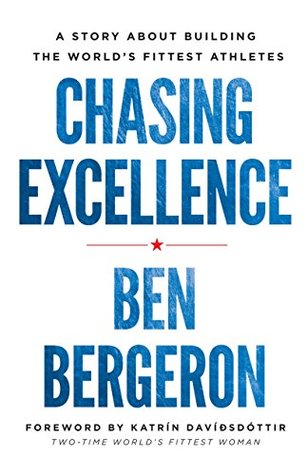More on this book
Community
Kindle Notes & Highlights
After last year’s Games, when he won silver for the second year in a row, he looked inwardly without ego and knew he had to improve his running. So, he did what few athletes would have the humility to do—he reached out to the local high school track coach and asked if he could practice with the team a few nights a week. Then he got his ass handed to him two nights a week for six months. “Everything you’re supposed to be doing during sprinting, I was doing the exact opposite,” Mat told me. “My technique was terrible.”
When you reach a certain level, it’s far easier to hide in your strengths because of the ego-boost they provide—you feel good, you look good, and people are in awe. But it’s a trap; the moment you believe you’ve arrived at the door of greatness, it will be slammed in your face. Humility is an essential component of success. People like Mat and Katrín, who can look in the mirror and identify their weaknesses, are the people who grow the most.
Argyris used these insights to come up with the idea of “double-loop learning.” Single-loop learners search for external factors to explain why they’re not succeeding; they put it down as having the wrong coach, the wrong program, the wrong equipment, the wrong people around them, or what have you. Double-loop learners iterate, and then look inward for the solutions to problems that arise. They’re the kind of people who can take a hard look in the mirror and tell their reflection, “I’m the reason I’m not succeeding,” and then proactively change into a better version of themselves. They figure
...more
It’s easy to distinguish between different learners in personal and professional relationships. Single-loop learners look to their spouses, partners, bosses, or subordinates for reasons why things aren’t going well; they blame everything on other people. There’s always a reason why problems can be traced back to the other person in the relationship. Double-loop learners, however, take ownership of problems; they think: There must be something I’m doing that’s making my spouse/partner/coworker react this way. They take complete ownership of their situations. They dig deep to figure out where
...more
If it seems as if my team spends an inordinate amount of time focusing on character, it’s because we do. The most battle-tested, unimpeachable process is nothing unless it is accompanied by the character traits needed to make it stick. Humility is a huge part of the equation; it’s one of the cornerstones of the process—the only way I can make my team better is by acknowledging their limitations. They’re not the best in the world at everything, not even close. As a coach, it’s my job to continually look for weaknesses—for areas where we can be beat. The second I feel as if Katrín, Mat, or Cole
...more
Excellence is the gradual result of always wanting to do better. —Pat Riley
Success is not achieved by an occasional heroic response, but with focused and sustained action. Excellence can only be achieved today—not yesterday or tomorrow—because they don’t exist in the present moment. It’s the not-so-hidden secret to extraordinary success: clarify what you really want, then work as hard as you can for as long as it takes.
“Being clutch is not the hole-in-one to win; it’s the well-struck shot close to the flag and the putt that drops in with the tournament on the line. It’s the precisely executed series of plays in football, not the Hail Mary pass. It’s the fortitude to continue battling out a Wimbledon final as you always have—even though the whole world is wondering whether you are going to choke.”
Vision without action is a dream. Action without vision is a nightmare. —Japanese Proverb
While we all have unique circumstances and problems, many change issues come down to the same thing: the ability—or inability—to translate vision into simple, ordinary, everyday actions. That’s what the process is about—not some big, hairy, audacious goal, but the thing you can and should be doing today, right now, to get there.
a curious thing happens when you start acting like a champion—when you commit everything you have to the process, everything else tends to fall into place. It won’t be easy, and it won’t happen overnight. You’re not going to be perfect; in fact, you’re going to struggle a lot along the way. But if you can chase perfection every moment of every day, you can catch excellence. But you have to start. Go get to work.


